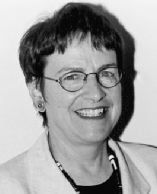Open those checkbooks a little wider, folks—those city office candidates want more money.
By a 5-4 vote, the Seattle City Council last week increased the maximum allowed campaign donation to $600. This limit, which applies to contributions collected by candidates for council, mayor, and city attorney, was formerly set at $400. A healthy raise, to be sure, but the proposal was actually a compromise.
As with many recent council decisions, there wasn’t much anticipation. Most council members had already staked out a public position on the issue, and so-called “swing vote” Jim Compton hasn’t swung away from any stand embraced by the council’s establishment bloc in his first year in office. Joining Compton in supporting the raise were Richard Conlin, Jan Drago, Richard McIver, and Margaret Pageler.
The only lively moments in the debate were provided via an impassioned speech by council member Judy Nicastro, who argued that approving the increase would drive up the total cost of campaigning. This would, in turn, limit the number (and types) of people who could realistically make a run for public office, she said. “Slowly, unnoticed, and without intent, money will close the doors.”
Other council members trotted out the same old arguments in justifying their votes for the higher limit. Seattle’s donation limits are low compared to those in other jurisdictions, they argue, and the cost of campaigning has risen since the $400 figure was chosen in 1994. Nice try, but a city staff analysis of the effects of inflation on campaign costs showed that the donation limit should be adjusted to $470, not $600.
Increasing the donation limit will undoubtedly increase the role of money in Seattle city politics. Curiously enough, this vote took place on the eve of the national elections, after all concerned have spent months watching the effects of unlimited campaign spending. It’s hard to see why the council majority chose such a role model.
Three-party system
Why do you think they call them third parties?
Since 1864, only a single presidential candidate unaffiliated with either the Democratic or Republican party has managed even a second-place finish, and that was Progressive Theodore Roosevelt (1912), who had previously served two terms in the White House as a Republican.
If the Green Party’s Ralph Nader reaches 5 percent of the vote in the final count this year, he would be just the sixth third-party candidate in that period to reach that not-so-lofty perch. Roosevelt’s 27.3 percent of the vote and six states won in the Electoral College remain third-party all-time bests.
The major role for third-party candidates has been as spoilers. The Populist Party’s James Weaver took 8.5 percent of the vote in 1892, helping ex-President Grover Cleveland to return to office. John Anderson’s 6.6 percent in 1980 and Ross Perot’s 18.9 percent in 1992 were widely credited with helping respectively Ronald Reagan and Bill Clinton into the Oval Office. And Roosevelt’s 1912 run gave William Howard Taft the dubious honor of being the only US chief executive to finish third in his bid for re-election.
As for Nader’s contention that a 5 percent finish could cement the Green Party’s role as a continuing political alternative, well, that hasn’t panned out historically. At least, he’ll certainly be able to accomplish one feat matched by only a single third-party candidate—improving his take of the vote in his second try for the presidency. His historical counterpart: Socialist Eugene V. Debs.
That darn Constitution!
Seattle’s sweeping pre-employment drug testing program may have fallen victim to a state Court of Appeals panel, but it’s still stirring up controversy in City Hall.
In an October 25 letter, six council members (Compton, Conlin, Nicastro, Nick Licata, Peter Steinbrueck, and Heidi Wills) urged City Attorney Mark Sidran not to appeal the decision that a blanket drug testing program violates the state Constitution’s privacy clause. Council President Margaret Pageler wasn’t impressed. She fired off her own letter two days later, mourning the loss of the case and asking Sidran to make the determination of whether or not to appeal the case “based on your best judgment of the likelihood of success before the Supreme Court, not on whether political partisans have lobbied council members about the issues in the litigation.”
Sidran was angered, as well. In an executive (closed) session of council, he chewed out the six letter writers for not personally contacting him about the issue before taking their concerns to the media (faxed copies of the letter were humming over the phone lines even as the city attorney was reading his). He’s probably justified in being annoyed about the headline hunting; although, the purpose of executive sessions is to discuss ongoing litigation, not hide disputes between city officials. Had it been appropriately conducted in regular session, we’re sure Sidran’s temper tantrum would have been a top replay request with viewers of the city’s cable access channel.
After all that, Sidran announced last week that no appeal will be filed in the case. A Sidran spokesperson says the decision not to appeal the drug testing decision was made after consultation with his clients within the city, including city departments, the mayor, and presumably the members of the City Council (when he wasn’t busy scolding them).






